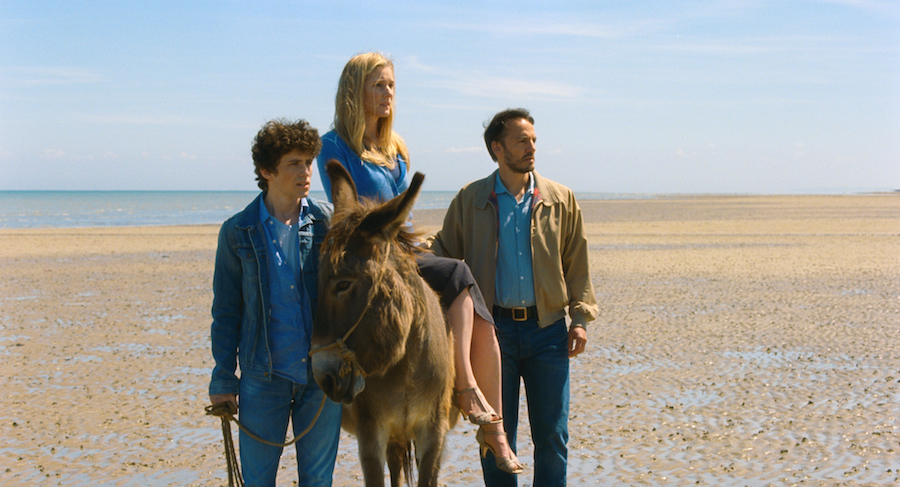‘The Son of Joseph’ Eugene Green’s “The Son of Joseph” opens with images of busy city life. It’s a cacophonous mess the filmmaker will soon organize into something peculiar, controlled, eccentric. And the cinema of Eugene Green is very eccentric. The American ex-pat makes a specific, even alienating style of Euro art film. As in “The Portuguese Nun” and “La Sapienza,” the shots are unhurried, sometimes symmetrical, occasionally Ozu-esque. The actors are Bressonian robots, standing stiffly in place, flatly spouting declarative dialogue peppered with gnomic wisdom and one-liners. The performers might even seem bad at first, including the famous ones — until you settle into the groove, maybe even find the unique spell being conjured refreshing, soothing. Green’s mix of minimalism and formalism may be reminiscent of others (dare we namedrop Wes Anderson?), but Green goes further into the breach. Throw in his yen for history, for keeping the past alive, for lengthy chats about art and religion, and he’s a genre unto himself. In other words, his films take some getting used to — like a language you can only master through osmosis. RELATED: Martin Scorsese’s “Silence” doesn’t deserve to be ignored “The Son of Joseph” is more accessible than usual — the gateway film you’d recommend to a Eugene Green newb, though it’s no sell-out. Where “La Sapienza” was a kind of art history lesson/travelogue, here Green gifts us with his curious version of a farce. Vincent (Victor Ezenfis) is an angsty teen who sets out to find the father he’s never known, against the wishes of his doting, lonely mother (Natacha Regnier). His quest leads him to Oscar Pormenor (Mathieu Amalric), a pompous, dickish book publisher and such a bad father he can’t even remember how many kids he has, if any. Maybe biological parents are overrated? That’s the takeaway when Vincent instead gloms onto Joseph (Fabrizio Rongione), Oscar’s kinder, gentler brother, who helps steer this snaky narrative in another, unexpected direction. This all happens in relative slow-motion, because it’s still an art film, even if it does have a comedic set piece not too dissimilar to one in the James Franco-Bryan Cranston romp “Why Him?” Still, there’s something amusing about a film so powerfully unusual and untrendy; even when it’s not overtly trying to be funny, it still kind of is. There’s a handful of choice quips, usually delivered by Amalric. (“Don’t forget I have a wife and five children at least.”) But Green seems to be aware that his interests and those of the rest of the world don’t align, which he finds funny. And so we get a film where characters are often referred to by first and last name, where sincere theological talk exists alongside a subplot about an internet sperm business, that can do austere long takes and out-of-nowhere sight gags. His films are filled with history and art, of trips to museums, even our heroes “escaping” on a jackass during the sorta-action climax. It’s not unlike Jim Jarmusch’s “Paterson,” in a way. Both films are an accumulation of things the filmmaker loves, and each one’s existence is a gentle thumb in the eye to a brave new world overly distracted by the now. They’re both funny and sincere simultaneously, and very nimble with its deeper nuances. And both work as calming respite from the noise and horrors of the world — each a trip into one wonderfully unusual maverick’s head.
Director: Eugene Green
Stars: Victor Ezenfis, Natacha Regnier
Rating: NR
4 (out of 5) Globes
‘The Son of Joseph’ is Eugene Green’s latest eccentric, soothing art film

Kino Lorber
Follow Matt Prigge on Twitter @mattprigge

















